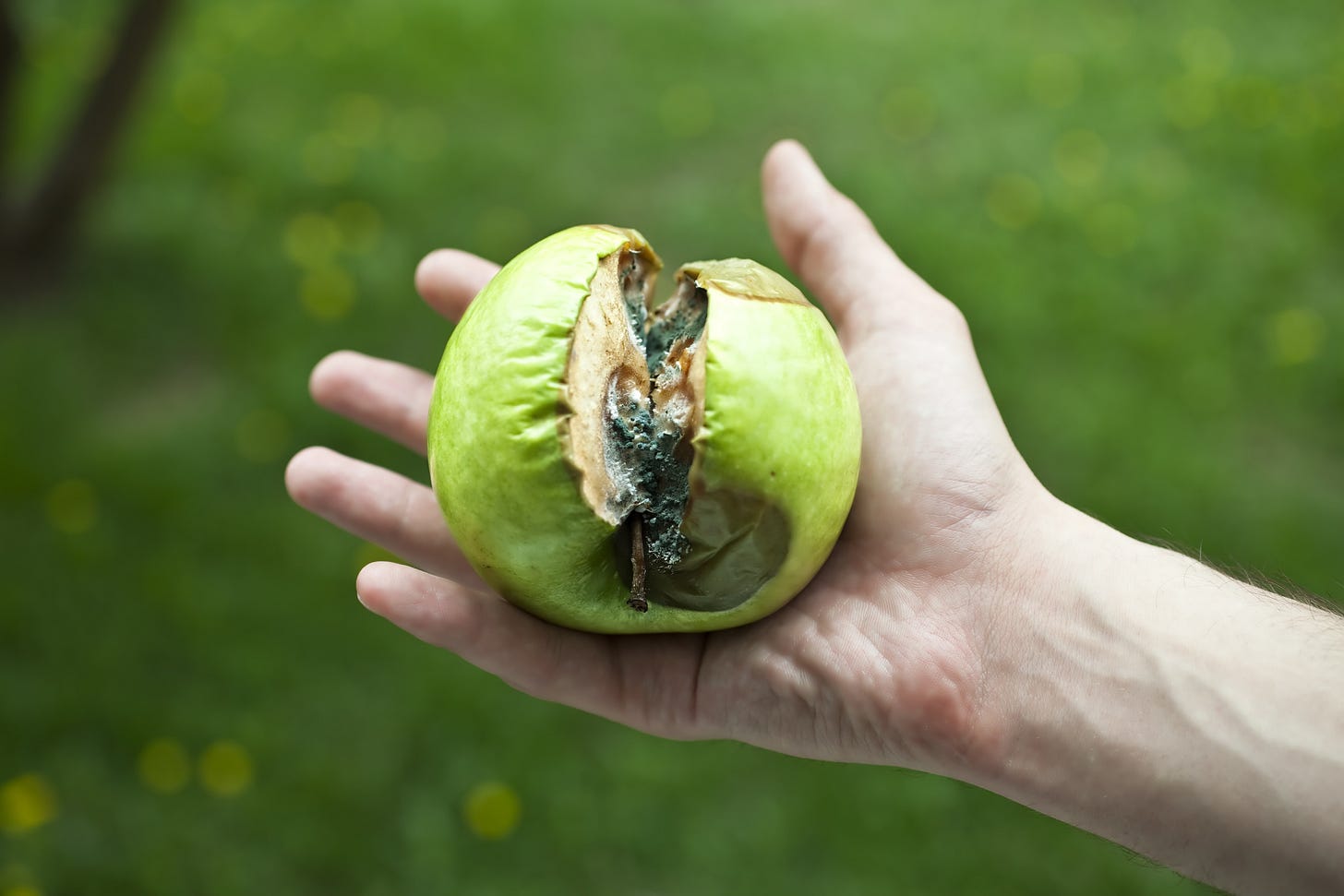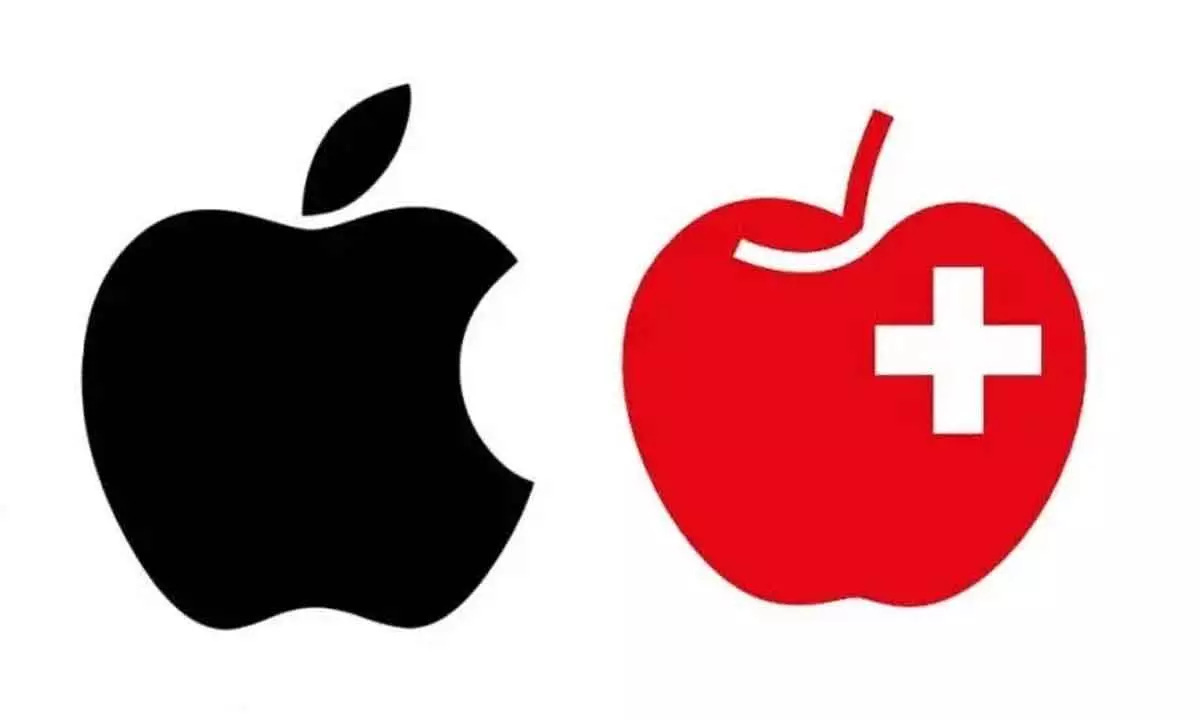Apple's Fight to Trademark the Actual Apple
It’s the richest company in the entire world, with a market cap of around $2.9 trillion, annual revenue of over $385 billion, and something like $50 plus billion in literal cash in the bank. Each product division could be spun off into its own Fortune 500 company.
It’s a money-printing giant.
But god forbid, Fruit Union Suisse, the oldest and largest fruit farmer’s organization in Switzerland that has existed for 111 years, just doing its thing, also has an Apple in its logo.
News broke last week on the story that Apple is trying to trademark the Apple in Switzerland. And not just the one with the bite out of it, but the entire use of a black-and-white image of an apple. In this case, a photo-real Granny Smith Apple. With an apple being subjective — different sizes and shapes — the company is trying to secure a pretty wide berth; its objective is to own the rights to an actual apple. Which, if we use even an ounce of common sense, is an object that is almost universal and, therefore, should be free for everyone to use. Of course, Apple, and any other company or business, should be protected from imitations or blatant rip-offs of its logo and brand. Yes, the system itself is pretty broken, requiring companies to spend vast sums defending these trademarks, despite the whole point of the trademark being to legally secure designs or brand marks. The whole IP industry makes buckets of money because of this.
But this is just corporate bullying.
Apple has history too. The company has racked up more trademark opposition than its big tech rivals Microsoft, Facebook, Amazon and Google combined. Between 2019 and 2021, it filed 215 trademark oppositions to defend its logo, name or product titles. They’ve gone after a meal planning app that used a pear as its logo, a German cycling route, a stationary business called Paperapple, and famously fought a decades-long battle with the Beatles’ music label, Apple Corps. Interestingly, Apple Corps was formed first in 1967. According to an article in Wired, Apple also has history in Switzerland. In 2010, the company forced a small Swiss grocer’s cooperative to officially agree never to add a bite mark to its logo, even though it had no plans to. It gets more ridiculous. In 2020, Apple took action against an independent singer-songwriter who used the stage name Franki Pineapple. Yes, you’re correct in thinking an apple and a pineapple is not the same. But in Apple’s eye, “both the names of fruits and thus convey a similar commercial impression.”
None of these companies directly compete with Apple. They don’t even half-compete. It’s almost laughable that they care at all. And yet Apple throws its corporate might and bottomless bank account around at the slightest whiff of resemblance because it can.
And that brings us back to Switzerland. Apple has been trying to copyright real fruit in the country since 2017. They sought to cover apple-related content in various media forms, including electronic and digital media, consumer hardware and products. The Swiss courts granted some IP rights, but Apple appealed in April 2023 (hence why the story appeared). Interestingly, other countries, including China and the UK, have been more receptive to Apple's trademark claims.
Should Apple win its appeal, Fruit Union Suisse will likely have to spend millions designing and relaunching a new logo, despite not selling any electronic or digital products. If they chose to fight, Apple would financially blow them out of the water. And that’s the problem with the system — it favors those with the deepest pockets. When Apple comes calling, there is almost no chance the other party can fight back.
Though the case could take months or even years to resolve, Fruit Union Suisse already fears the worst. It’s hard not to feel for them; their history is now on the line because of a dose of corporate bullying.
Jimmy Mariéthoz, the director of Fruit Union Suisse, put it best.
“you know, Apple didn’t invent apples … We have been around for 111 years. And I think apples have been around for a few thousand more.”
This isn’t apples to apples.
This is apples for Apple.



